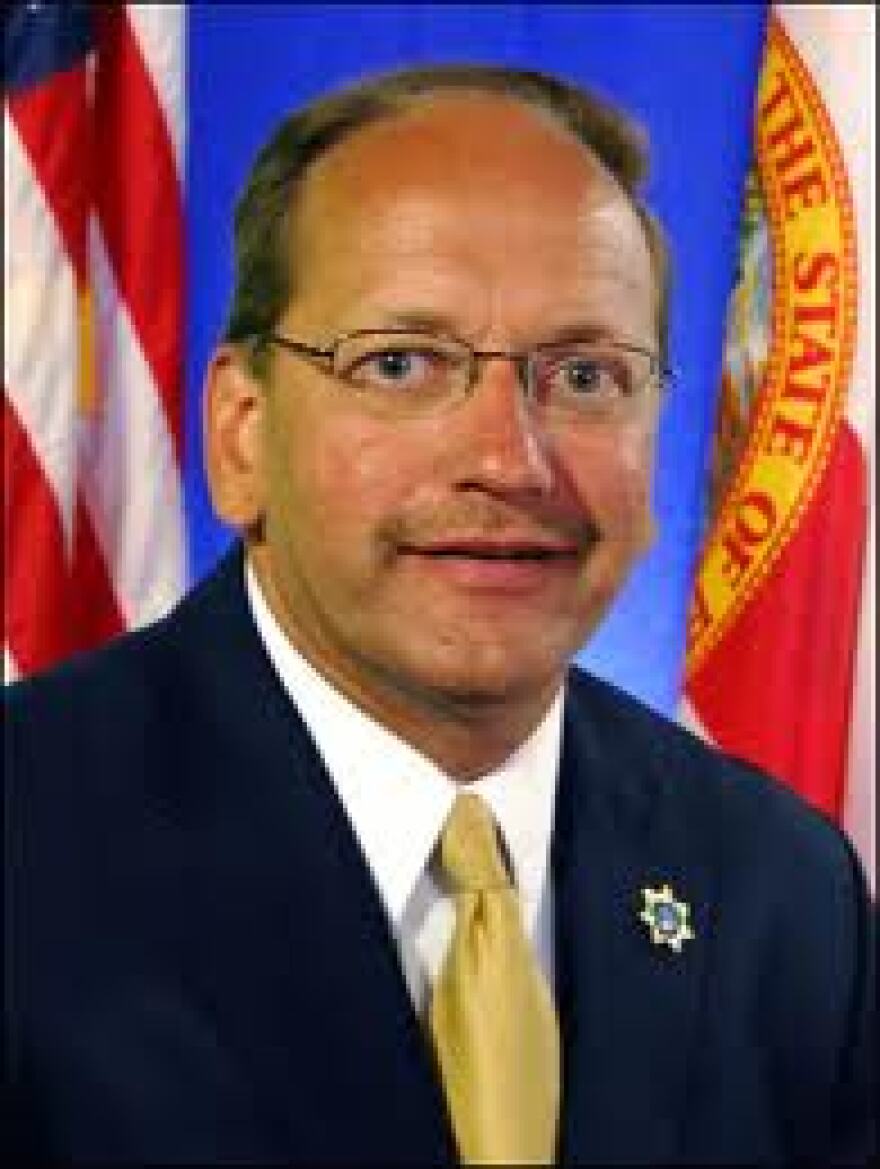By Sascha Corder
http://stream.publicbroadcasting.net/production/mp3/wfsu/local-wfsu-981838.mp3
Tallahassee, FL – About 20-percent of Florida's 102-thousand inmate population is housed within the 30 South Florida state prisons that will soon be privately-run. But, there are still those who are not completely sold on the idea. As Sascha Cordner reports, some worry private vendors select less expensive inmates AND the Governor is facing criticism for accepting campaign contributions from some of the private vendors.
Florida Department of Corrections Secretary Edwin Buss says he was stating a fact when he called the privatization plan one of the most aggressive expansions that's been done in the history of the United States.
Others would agree, although theirs may have more of a negative connotation. Opponents, like Florida Police Benevolent Association President John Rivera, say the massive privatization plan is not in the state's best interest.
"They want prisoners that pose the lowest risk. They want the healthiest prisoners. So, what they want is the state to maintain the high risk, the most dangerous prisoners, and the sickest of the prisoners, so that we would get stuck with the medical bills and what have you. But, they wanted to cherry pick. Why? Because they are profit driven and want to make more profit."
Cherry-picking is one of the many controversial topics associated with privatization. At issue is whether private vendors hand-select inmates who put up the least trouble and are the least expensive. But, Steve Owens says that's false. He's the spokesman for one of the main private vendors, CCA, or Corrections Corporation of America.
"At the end of the day, Government decides what services they want to contract for. Government determines which inmates they want to place in private facilities and what scope of services they want providers, like CCA, to give to the state. So, that is one of the myths that unfortunately does perpetuate."
But, state Senator Mike Fasano doesn't think it's a myth. He says though he has trust in Corrections Secretary Buss' abilities, Buss will not be able to prevent the inevitable.
"It's just going to happen. The private companies are going to cherry pick. They're going to decide what prisons they want to take over and which ones they don't because they'll take over the ones that maybe are less costly to run. And, what's going to happen is we the taxpayers will have to pay the bill for the more costly prisons and the more costly prisoners."
Under Florida law, only the Department of Corrections can say which prisoners go where. But Buss says some private vendors have found a way to get around the law and select their own prisoners.
However, to allay everyone's fears, Buss says that is something he won't allow.
"So, there's not going to be any opportunity for cherry picking because they're going to get the inmates that are there in South Florida. There are not going to be any special language in the contracts that says you can only take a certain offender with one medical code, but not somebody with acute issues. So, the whole cherry picking argument will be over after this."
At the heart of the debate is what will happen to the roughly four thousand state correctional officers who will lose their jobs as a result of the privatization plan. It's also one of the reasons why the Florida Police Benevolent Association is suing Corrections Secretary Buss. But, Buss says those officers will get a chance to make their own decision of whether or not they want to stay with state employment or if they want to go to a private company.
Matt Puckett with the Florida Police Benevolent Association still isn't happy. He claims Scott and the Legislature made their decision to privatize prisons for political reasons, not out of necessity.
"If you look at the donations, that specifically, GEO group, has given to politicians, specifically politicians in the legislature, I don't think it's a stretch to say politics was at play."
Opponents say Boca Raton-based private vendor GEO group will likely win the bid because they contributed the maximum amount of 25-thousand dollars toward Scott's campaign. Corrections Corporation of America, or CCA, contributed five thousand. No matter the contribution, the FPBA claims the private vendors backed Scott to advance their own agenda.
Steve Owens with CCA defended his company's honor.
"I think a claim like that is absurd. We support candidates who are either supportive of public-private partnership or at least open to the idea of public-private partnership, and no different than any resident or any businesses, we have a right to participate in the political process and to contribute and CCA does so appropriately and all of that is publicly available. We're very transparent."
GEO Group could not be reached for comment.
But, the debate still continues as to which one is better: public or private, Florida State University Criminology professor Dan Mears had a suggestion -- do more in-depth research.
"So, what kind of information could we use? We could use inmate surveys, officer surveys, administrative personnel surveys, there's all sorts of all kinds of other data that we could collect and do so very cost effectively. And, with that we would actually have an empirical basis for saying how well are the public prisons run and operating, how well are the private prisons operating, and we just don't do that, and no state that I know of does that in any rigorous way."
Either way, Corrections Secretary Buss still has to go along with heading the privatization effort. By November, he expects to know the winning private vendor company that will take over the 30 South Florida prisons. Then, in January of next year, the process will begin.


